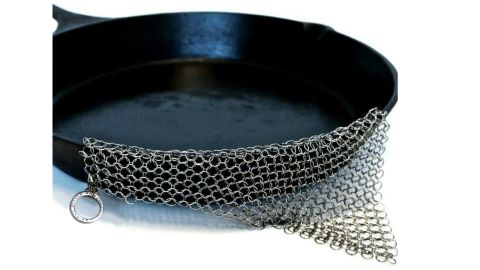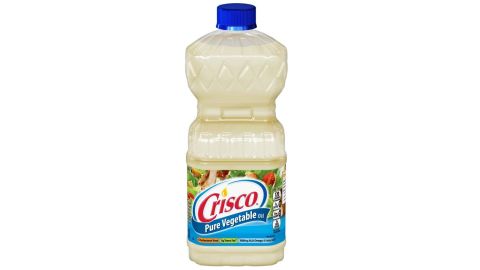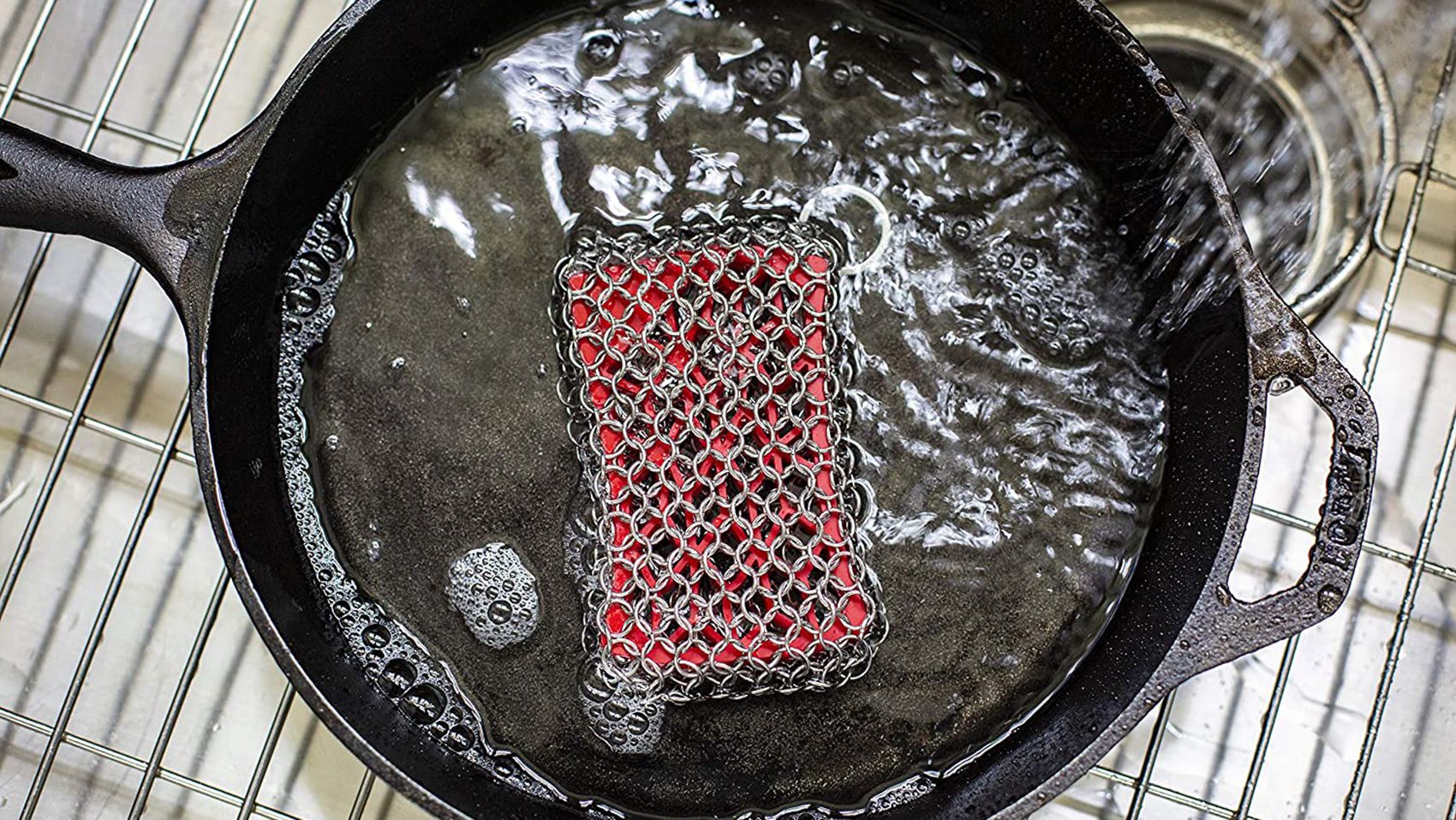Other than the menacing mandolin slicer, almost no other kitchen staple comes with as many rules and regulations as does a cast-iron pan. There are seasoning rules, usage rules and the biggest rule of them all — the Do Not Use Soap rule.
But rules are meant to be broken, and not only are we going to break the cardinal rule of washing a cast-iron pan, with the help of two seasoned cast iron experts, we’re actually going to go ahead and throw that rule right out the window.
Daniel Gritzer is, in my opinion, the most learned man to seek out on the subject of cast iron care, and so I did. Gritzer’s seminal work on the subject for Serious Eats, where he is the culinary director, changed the way I think and write about cast iron care.
According to Gritzer, the best way to clean a cast-iron pan after cooking in it is to wash it by hand with soapy water and a scrub sponge.


If that sounds like a radical departure from the old wisdom that said one must never use soap on a cast-iron pan so as not to disturb the pan’s seasoning, Gritzer explains the science behind his advice to break with tradition. “Seasoning is not flavor,” he says. “It’s a coating of fat that has been polymerized (that’s geek-speak for transformed into a plastic-like coating). It’s not greasy, it’s not gunky, it’s not thick with burned-on food debris. Good seasoning is smooth, clean, non-sticky and dry to the touch.”
In his article on cleaning a cast iron, Gritzer notes that, “As those layers [of seasoning] build up, the pan becomes increasingly protected against rusting (which, in its stripped-bare state, it will rapidly do just by sitting in the open air) while also developing the nonstick characteristics that make cast iron so useful.”
Buried in there is a word that should replace “soap” in your lexicon of Things to Avoid When Cleaning Cast Iron, and that word is “rust” (but don’t worry if your pan does go rusty, we’ve got help for that too below). While soap will not hurt your cast-iron pan, water will, because it will cause the metal to rust, and so that is the thing you should not use on a cast-iron pan. Now, that doesn’t mean you should not use any water at all, but it does mean you should not do the following things when washing a cast-iron pan:
- Put the pan in the dishwasher
- Soak the pan in water
- Leave the pan to drip dry after washing
To the last point, dry your cast-iron pan immediately after washing, either with a dark-colored dish rag (dry a cast-iron pan one time with a white dishcloth and you will quickly learn why a dark one is a better choice for the job!) or by placing it on a low flame to dry. If you opt for flame-drying, go ahead and hit the pan with a small amount of oil, which will add another thin layer to your pan’s protective coat of seasoning.

For a second opinion, I turned to Adam Feltman, an associate brand manager for Lodge Cast Iron, who echoed Gritzer’s advice to use soap and water to wash a cast-iron pan. (If you’re in the market for a new cast-iron pan, Lodge is our pick for the best overall cast-iron skillet.)
“Wash your cast-iron cookware by hand, and feel free to use a little soap if you like,” Feltman says. “For stuck-on food, our pan scrapers and scrub brushes are a big help.”


He also emphasizes the importance of drying cast iron thoroughly after washing, saying, “Promptly dry the skillet by hand with a lint-free cloth or paper towel.”
If you still feel that avoiding soap on cast iron is the right choice for you, that’s fine — the scrub brush and scraper Feltman recommends can be used to clean a cast-iron pan without the use of soap. Those medieval-looking chain mail scrubbers are also an option for people who choose to go soap-free, or for those who like to add a bit of Renaissance Faire flair to their dish-doing.
“I’ve used the chain mail scrubbers and they work well for removing burnt-on crud, but I don’t think they’re really necessary,” Gritzer says. “A good salt scrubbing on the heat can get that crud out too.”

Feltman also likes the chain mail scrubbers. “They can be super helpful for removing stuck-on food. Lodge has one of our very own that is perfect for heavy-duty cleaning,” he says.

Cast iron experts like Gritzer say that the best way to care for a cast-iron pan, just as with grills, is simply to use it.
When it comes to seasoning a cast-iron pan, there are almost as many confusing rules as there are for washing one. Gritzer, who has also written extensively about how to season cast iron, prefers vegetable, canola or corn oil for the job. Using the pan often will also bolster its seasoning, especially because, as he points out, “each time you cook in it with some type of fat, you’ll be laying down more seasoning.”

If you’re new to seasoning cast iron, Feltman recommends Lodge’s Seasoning Care Kit, which he says “contains everything you need to get the job done.”

How to restore and remove rust from a cast-iron pan
Now that we’ve established that water, not soap, is the true enemy of cast iron, what can be done if a piece of cast-iron cookware has gone rusty? Well, first, don’t panic.
“Cast iron can take a beating, so don’t be timid around it. Yes, there’s some chance you can mess up the seasoning, but that can be fixed. The pan itself will survive a lot of misuse, so go ahead and use it — no need to handle it like fine china,” Gritzer says.
Feltman concurs, saying, “It’s incredibly easy to clean and care for cast iron. It’s impossible to ruin your pan.” This is true even if the dreaded rust makes an appearance: “We have rust erasers that can bring it back to life in the event water soaks in it,” Feltman says.

Lodge offers a simple three-step process to restore a rusted cast-iron pan:
- Scrub: Scour the rusty pan with warm, soapy water and steel wool. Rinse and hand dry thoroughly.
- Oil: Apply a very thin, even layer of cooking oil to the cookware.
- Bake: Place the cookware in the oven upside down on the top rack. Bake at 450 to 500 degrees Fahrenheit for one hour.




























































